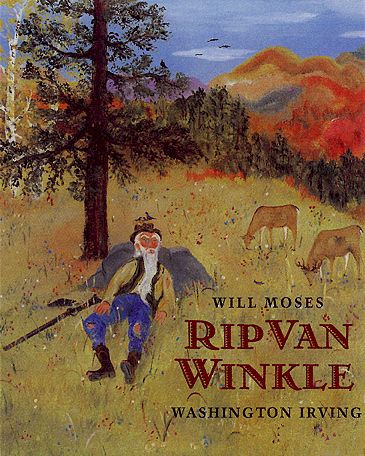

'Poor Wolf,' he would say, 'thy mistress leads thee a dog's life of it but never mind, my lad, whilst I live thou shalt never want a friend to stand by thee!'" "Rip Van Winkle," 1994 edition, 9-10 Here he would sometimes seat himself at the foot of a tree, and share the contents of his wallet with Wolf, with whom he sympathized as a fellow-sufferer in persecution. "Poor Rip was at last reduced almost to despair and his only alternative, to escape from the labor of the farm and clamor of his wife, was to take gun in hand and stroll away into the woods. If America was to develop a social and cultural history, there was no better place to look than the homes of the old Dutch burghers. The Dutch, being the elder Europeans in the region and more apt to have stories and to believe the stranger ones, particularly attracted Knickerbocker.

He passed by the books when he had a chance to talk to the actual people, and he was willing to travel to verify the stories that he heard. Knickerbocker himself, however, was a different kind of historian altogether, preferring to go to the original sources of stories to hear them for himself. Knickerbocker's historian writes at one remove from Knickerbocker himself, relying on Knickerbocker's words and investigations. Whenever, therefore, he happened upon a genuine Dutch family, snugly shut up in its low-roofed farmhouse, under a spreading sycamore, he looked upon it as a little clasped volume of black-letter,' and studied it with the zeal of a book-worm." "Rip Van Winkle," 1994 edition, 1-2 "His historical researches, however, did not lie so much among books as among men for the former are lamentably scanty on his favorite topics whereas he found the old burghers, and still more their wives, rich in that legendary lore, so invaluable to true history.


 0 kommentar(er)
0 kommentar(er)
